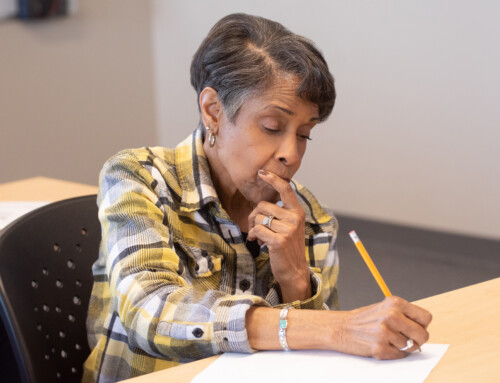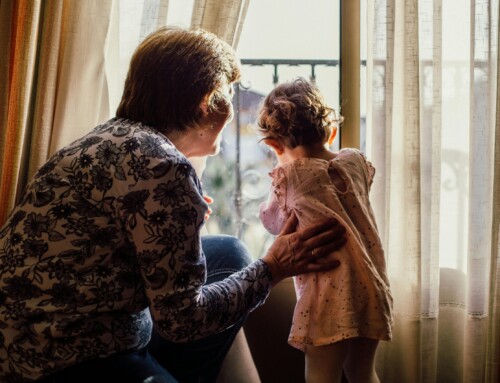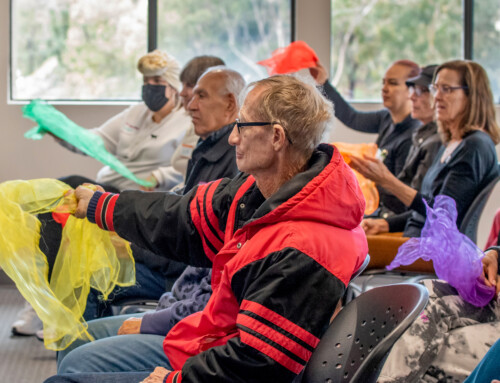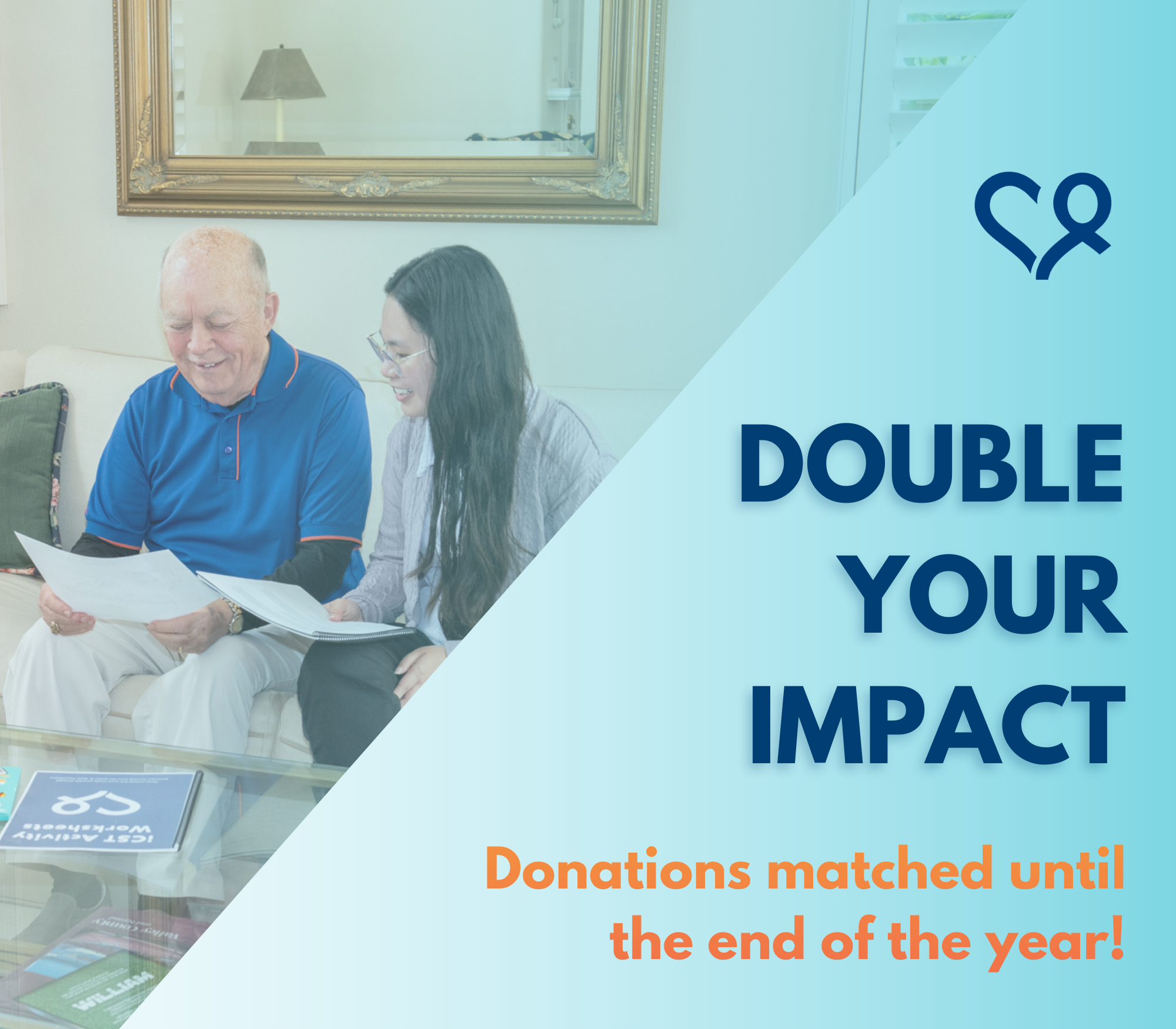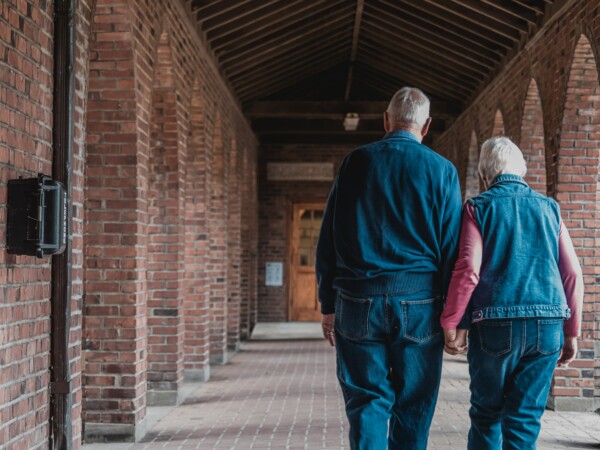
Welcome to part two of our four-part blog series on Intimacy & New Relationships, where our Director of Clinical Services, Sarina Barker, discusses the very real ways that loneliness and the lack of intimacy can adversely affect your life. Part 1 / Part 3 / Part 4.
A RECAP OF PART ONE
In part one of this series, I introduced the sensitive topic of how some caregivers respond to the overwhelming sense of loss, isolation, loneliness, and separation that occurs when a loving spouse or partner is disabled by dementia and irrevocably loses the ability to be a partner in the relationship. Four questions were provided to help care partners determine if they are emotionally and psychologically ready to date again.
THIS WEEK’S TOPIC
In this week’s blog, we will talk more about the variety of emotions caregivers may feel when it comes to intimacy and connection.
Working with care partners over the years, I have seen some sombering facts that I had not anticipated when I began in this role. For example, grief manifests itself in a variety of ways. Some of the impacts are to be expected, others may come as an unpleasant surprise. Like all human beings, when it comes to grief and the loss of a connection with a partner, one’s responses and feelings are unique to them. It is so personal that only they themselves can identify what they have lost in this process and how that loss has affected them.
PHYSICALLY PRESENT BUT PSYCHOLOGICALLY ABSENT
We know that all people desire to feel a sense of value, being seen, and appreciated. Unfortunately, due to how different types of dementia affect the brain, the emotional and physical connections that were at the core of the relationship begin to fade. The disease robs the care partner of the reciprocation of these emotions from their person, as they are no longer able to function as they did before. One cannot share important conversations or decisions with their person anymore. It will become challenging to joke around or share a story as communication becomes difficult. Social cues and frames of reference may no longer be understood. The desire to have sex with your partner is likely to disappear because it is impossible to know if it is consensual or if your person is cognitively able to understand the act. All the years of building a relationship with one person can slowly begin to feel like your best friend, enthusiastic companion, trusted confidant, and lover is gone. Physically present, but psychologically absent.
THE EMOTIONS OF GRIEF AND LOSS
I mentioned this point of conflict between emotions in the blog last week. As with grief, there is no single way to anticipate or understand how difficult this journey may be. Let’s talk more about some of the emotions connected to grief and how care partners may begin to feel overwhelmed, confused about whether they are making the right choices. You can see who they are now and remember who they were before and the grief over that loss can be overwhelming.
Loneliness is a term often used to describe the lack of connection to someone else. I have heard care partners talk about loneliness in the loss of communication, loneliness in one’s needs not being met (mentally, physically, and sexually), and loneliness arising in the quiet emptiness of the home (when one partner enters residential living).
Emptiness revolves around the connection to yourself and the situation in which you have found yourself. With caregiving consuming one’s energy 24/7, there isn’t much time for familiar or personally satisfying activities. The emptiness comes from no longer engaging in the activities that once brought pleasure, rewards and gave life more meaning.
Sadness is characterized by sorrow. This is one of the strongest emotions we may feel as humans and it can linger the longest due to its direct connection to grief. If grief has no timeline, then we know that sadness can return over and over again.
Shame is an emotion that encompasses extreme vulnerability and exposure. Family and friends, who have never been in your situation may be critical of your best efforts. One may experience humiliation because, in the judgment of family and friends, your caregiving abilities didn’t meet their expectations. In all my conversations, this is one of the most difficult emotions to wrestle with as care partners have a longing need and desire to feel connection but struggle with how to satisfy everyone else’s expectations before their own needs.
Guilt is the acceptance of one’s behavior and how it may impact someone else. You may look back on your actions with regret for something done or left undone. That’s perfectly normal and you may experience this throughout the caregiving journey. The care partner is doing their best on the day-to-day to meet all the requirements necessary to keep their partner comfortable, confident, and safe but mistakes will happen. Emotions of guilt can also creep in if a care partner desires a different life – either their former life before this disease or a life without dementia. Guilt is an emotion that always exists in the background, with the lingering question of “Am I doing the right thing?” and with the knowledge that, despite your best efforts, the answer is sometimes, “No.”
Resentment shows up when a care partner is angry that this disease changed the trajectory of their future with their companion. It was not part of the plan. Others may feel resentment towards giving up their old life and the ability to be cared for as they once were by their partner. Resentment is tied to grief as we begin to process how unfair life may be.
Each of these natural and often unavoidable emotions are rooted in grief and loss of connection. They are all a human response to the painful reality of caring for someone with this disease. Grief is never truly finished, instead we learn to live with it. Beginning to understand how a care partner may have reached a place of wanting to start a new relationship shows courage and strength in their ability to want to love and be loved again.
NEXT – HAVING HONEST CONVERSATIONS
Next week, we will focus on how to talk with family and friends about this decision. Not everyone will be a supporter and that’s okay. Truly understanding the depths of pain one has had to endure in the slow process of losing their partner is not something an observer may relate to. What’s important is that care partners gain the confidence and acceptance in knowing that their happiness and survival is just as important as the person they are caring for. No one will ever replace your partner, but finding companionship and fulfillment in dating again is possible.
Talk to one of our Clinical Care Coaches by calling us at 858.492.4400, and view our free services like education classes, support groups, social activities, and much more.
By Sarina Barker, MSW (Director of Clinical Services)

